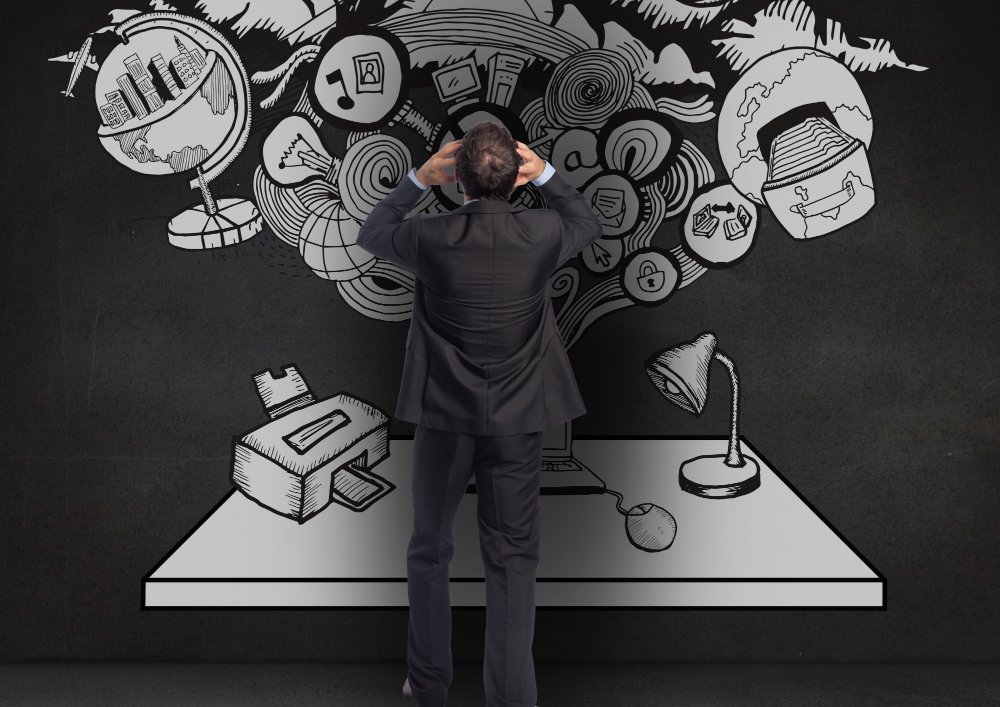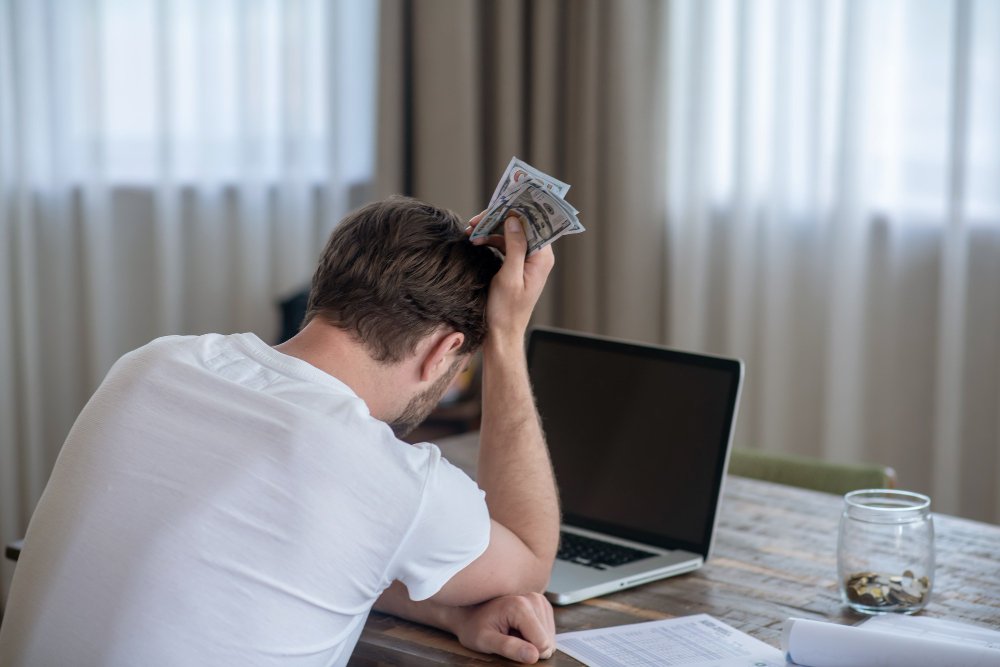In the relentless pursuit of a competitive edge, you constantly seek ways to optimize – your business, your investments, your life. You invest in cutting-edge technology, strategic advisors, and personal development. But what if the most potent performance enhancer, the ultimate biohack, isn’t found in a complex protocol or an expensive gadget, but in something fundamental you engage in every single night? We’re talking about Sleep Optimization for Peak Performance.
This isn’t merely about rest; it’s about strategically leveraging sleep as a high-yield investment in your cognitive capital, physical resilience, and long-term success. For high-achievers, driven executives, and discerning individuals accustomed to maximizing returns, understanding and mastering sleep is non-negotiable. It’s the accessible, yet profoundly impactful, “biohack” that underpins everything else.
This post will dissect the compelling science revealing why optimized sleep is arguably worth millions over the course of your career. We’ll explore how sleep influences everything from cognitive sharpness to emotional regulation, decision-making, and even long-term disease risk. For high achievers, it’s not just about rest—it’s a foundational biohack that fuels sustained success, resilience, and peak output in both professional and personal arenas.
We’ll also uncover the staggering, often hidden, costs of neglecting sleep. From decreased productivity and impaired judgment to increased healthcare expenses and burnout, the consequences compound over time. Poor sleep sabotages your body’s ability to recover, regulate hormones, and maintain metabolic and neurological health. In contrast, using sleep as a strategic biohack allows you to sharpen your competitive edge and extend your healthspan—your years lived in vibrant health, free of chronic illness.

Most importantly, this post provides a clear, evidence-based blueprint of actionable strategies you can implement starting tonight. These include science-backed biohacks such as aligning with your circadian rhythm, engineering your sleep environment, optimizing your nutrition and light exposure, and mastering your wind-down routine. Whether you’re an entrepreneur, executive, or simply someone looking to operate at your best, these sleep biohacks are powerful tools to unlock a new level of performance—and longevity.
Beyond Rest: Why Sleep Is Your Most Powerful Performance Lever

Many view sleep as passive downtime, a necessary inconvenience. Science, however, reveals a dramatically different picture. Sleep is an active, intricate process vital for optimal functioning, involving complex cycles that restore the body and, critically, recharge the brain.1
The Science of High-Performance Sleep
Your nightly sleep isn’t monolithic; it’s structured into cycles of Non-Rapid Eye Movement (NREM) and Rapid Eye Movement (REM) sleep. Each stage plays distinct, crucial roles. NREM sleep, particularly deep “slow-wave” sleep, is vital for physical restoration, tissue repair, growth hormone release, and consolidating declarative memories (facts and knowledge).1 REM sleep, often associated with dreaming, is critical for emotional regulation, processing experiences, consolidating procedural memories (skills and habits), and fostering creativity.3
Achieving peak performance requires optimizing both the quantity and quality of your sleep.7 While individual needs vary, numerous studies converge on an optimal range of 7-9 hours per night for most healthy adults.13 Intriguingly, research points towards a specific sweet spot – around seven hours per night appears associated with the highest cognitive performance, with performance declining for every hour significantly below or above this duration.16
This isn’t simply about maximizing time in bed; it’s about finding your optimal duration. Both sleeping too little (<6 hours) and consistently sleeping too long (>9 hours) are linked to detrimental outcomes, including poorer cognitive function, increased risk of heart attack, and higher all-cause mortality. Identifying and honoring your ideal sleep window is a personalized biohack that can significantly impact both daily performance and long-term health..8 This “U-shaped” relationship underscores that sleep optimization is about precision, not just accumulation.
Sharpening Your Edge: Sleep’s Impact on Cognitive Dominance

For executives and leaders, cognitive function is the currency of success. Sleep is the bedrock upon which this currency is built and maintained.
- Focus & Attention: Sleep deprivation directly attacks your ability to concentrate. It impairs attention, working memory, and vigilance, leading to more frequent “lapses” – brief moments of inattentiveness – and slowed cognitive processing.3 Think of the impact on high-stakes negotiations, complex data analysis, or simply staying sharp during back-to-back meetings. This decline is linked to impaired function in the prefrontal cortex, the brain region essential for executive tasks like planning and impulse control.18
- Memory Consolidation & Learning: Sleep is indispensable for locking in new information. Both NREM and REM stages work synergistically to consolidate memories, making them stable and accessible for recall.1 Whether you’re mastering a new market dynamic, integrating complex reports, or learning a new skill, optimized sleep ensures that knowledge sticks.
- Decision-Making & Judgment: Lack of sleep clouds judgment. It’s associated with increased risk-taking behavior, reduced cognitive flexibility (your ability to adapt to changing circumstances), and “feedback blunting,” where you become less receptive to learning from mistakes.3 In the C-suite or during critical investment decisions, such impairments can have catastrophic consequences. How sleep affects decision making executives is profound – it directly impacts strategic thinking and the ability to navigate uncertainty effectively.
- Creativity & Problem-Solving: Breakthrough ideas often emerge after a good night’s sleep. REM sleep, in particular, appears to facilitate the restructuring of information and the formation of novel connections between seemingly unrelated concepts – a hallmark of creativity.4 For leaders tasked with innovation and solving complex challenges, this sleep-fueled cognitive process is invaluable.
- Emotional Regulation: Ever felt more irritable or stressed after a poor night’s sleep? Sleep loss amplifies negative emotional responses and lowers your resilience to stress.18 This can manifest as impaired leadership, strained team relationships, poor communication, and an accelerated path towards burnout.
Beyond immediate cognitive effects, consistent high-quality sleep acts as a crucial builder of cognitive reserve.6 Think of cognitive reserve as your brain’s resilience – its ability to cope with challenges, stress, and even the physical changes associated with aging or potential pathology, while maintaining function. Quality sleep actively contributes to building and maintaining this reserve, safeguarding your high-level cognitive abilities not just for tomorrow, but for the decades to come. Conversely, chronic poor sleep can erode this vital buffer, leaving your brain more vulnerable.6 This positions sleep optimization for peak performance as a long-term strategy for sustained mental acuity.
Fueling Resilience: Physical Health, Recovery, and Immunity

Your mind cannot perform at its peak if your body is compromised. Sleep is fundamental to physical health and resilience.
- Physical Restoration: During sleep, particularly deep NREM sleep, your body undertakes critical repair work, including tissue regeneration, muscle growth, and protein synthesis.1 This is essential for recovering from daily stressors, intense workouts, or the demands of frequent travel.
- Metabolic Health: Poor sleep throws your metabolism off balance. It’s strongly linked to impaired glucose control, reduced insulin sensitivity, and an increased risk of developing type 2 diabetes.2 It’s also associated with weight gain and obesity, partly through hormonal disruptions affecting appetite regulation.2 Maintaining metabolic health is key for sustained energy levels and preventing chronic disease. Notably, managing blood sugar levels through evening meals may positively impact sleep quality and next-day cognitive performance.7
- Immune Function: Sleep and the immune system are intricately connected. Sleep deprivation weakens your immune defenses, increasing levels of inflammatory markers and making you more susceptible to infections, like the common cold.2 Consistent sleep is crucial for minimizing sick days and maintaining unwavering performance capacity.
- Cardiovascular Health: The links between poor sleep and heart health are robust and concerning. Insufficient sleep (duration and quality), fragmented sleep, and conditions like sleep apnea are associated with higher blood pressure, increased risk of coronary artery calcification, heart attack (myocardial infarction), stroke, and irregular heartbeats.2 The mechanisms involve increased sympathetic nervous system activity (“fight or flight”), systemic inflammation, and impaired endothelial function (the health of your blood vessel linings).10 Encouragingly, adopting a healthy sleep duration (6-9 hours) can help mitigate heart attack risk, even in individuals with a high genetic predisposition.17
Your Brain’s Nightly Cleanup Crew: The Glymphatic System
One of the most fascinating discoveries in recent sleep science is the glymphatic system – essentially, the brain’s dedicated waste clearance mechanism.1 During wakefulness, your brain cells produce metabolic byproducts. During deep sleep, the space between brain cells expands, allowing cerebrospinal fluid to flush through the brain tissue, clearing out these accumulated wastes, including potentially toxic proteins like beta-amyloid.1
This cleanup process is estimated to be significantly more active during sleep than when you’re awake.1 Why does this matter? The accumulation of beta-amyloid is a hallmark of Alzheimer’s disease.4 Studies suggest that even a single night of sleep deprivation can increase beta-amyloid levels in the brain.4 Chronic poor sleep may impair this vital clearance process, potentially contributing to the long-term risk of neurodegenerative diseases.1 Understanding this tangible mechanism elevates sleep from simply feeling rested to a powerful biohack—a way to actively participate in nightly brain maintenance, crucial for long-term cognitive health and function.
The High Price of Sleep Debt: Quantifying the “$2 Million” Opportunity Cost

The relentless drive of modern society often promotes the idea that sleep is unproductive time, a corner that can be cut for greater output.13 The data paints a starkly different reality. Sleep debt carries a hefty price tag, impacting not only individual well-being but also organizational productivity and national economies. Treating sleep as a non-negotiable biohack rather than a luxury is essential for reversing these widespread costs and unlocking sustainable performance at every level.
The Productivity Killer: How Poor Sleep Sabotages Success
Insufficient sleep is a silent productivity killer. At a macroeconomic level, the costs are staggering. The U.S. economy, for instance, is estimated to lose up to $411 billion annually due to insufficient sleep, equivalent to losing around 1.23 million working days each year.22 Other major economies like Japan, the UK, and Germany face similar multi-billion dollar losses.23
These astronomical figures translate to tangible costs at the individual and organizational level. Estimates suggest that productivity losses due to tiredness or sleepiness range from 4.5% to 6%.22 The annual cost per employee due to sleep-related productivity loss is pegged around $2,000-$2,500.19 Beyond reduced output, poor sleep contributes significantly to workplace accidents and errors.25 Insomnia alone is linked to an estimated 274,000 costly accidents and errors annually in the U.S., totaling over $31 billion.25 Furthermore, employees with sleep issues incur higher healthcare costs, partly due to the direct treatment of sleep disorders and partly due to the increased risk of comorbidities like cardiovascular disease.25
Now, consider the implications for a high-achieving executive or HNWI. If an average employee loses thousands in productivity annually, what is the opportunity cost for someone whose decisions shape company strategy, manage large teams, or direct significant investments? A mere 5% reduction in cognitive sharpness, decision quality, or strategic foresight due to chronic sleep debt 4 could translate into missed multi-million dollar opportunities, costly strategic errors, damaged reputations, or significantly slowed career advancement over decades. The “$2 Million Biohack” isn’t just about saving costs; it’s about unlocking the immense potential value – potentially millions over a career – that is lost when you operate below your peak cognitive capacity due to insufficient sleep. Improving productivity through sleep isn’t a soft benefit; it’s a hard financial imperative.
Investing in Your Healthspan: Sleep’s Role in Longevity and Disease Prevention

Beyond immediate performance, optimizing sleep is a critical investment in your long-term health and vitality. It’s not just a recovery tool—it’s a high-impact biohack that supports everything from brain function to cellular repair. The goal isn’t just extending lifespan (how long you live) but maximizing healthspan—the number of years you live in good health, free from chronic disease and disability..11
As discussed, poor sleep is a significant risk factor for a host of major chronic diseases that diminish healthspan, including cardiovascular disease 5, type 2 diabetes 5, obesity 2, and neurodegenerative diseases like dementia and Alzheimer’s.4 Studies show that individuals adhering to healthy sleep patterns have a significantly reduced risk of reaching the end of their healthspan prematurely (defined by the onset of major diseases or death).11 In fact, one study estimated that achieving optimal sleep habits could add nearly 5 years to life expectancy for men and 2.5 years for women at age 30.10 Conversely, consistently sleeping less than 5-6 hours per night is associated with a notable increase in mortality risk.5
Emerging research suggests sleep impacts the very processes of biological aging. Poor sleep may disrupt mitochondrial function (cellular energy production), impair cellular repair mechanisms, potentially influence telomere length (caps on chromosomes linked to aging), and promote chronic inflammation – all key drivers of the aging process.20 Therefore, prioritizing sleep is not merely about feeling better day-to-day; it’s a foundational pillar of proactive healthspan management. It’s one of the most powerful longevity biohacks available, allowing you to take control of your long-term well-being and maintain high function deep into your life.
Synthesizing these points, the value proposition becomes clear. Consistent, high-quality sleep is not a passive activity but a strategic imperative—and one of the most effective biohacks available. It directly fuels the cognitive prowess needed for executive success, drives productivity, prevents costly errors, and fundamentally safeguards your long-term physical and mental health. The cumulative impact of this single biohack over a high-performance career represents an immense, potentially multi-million dollar, return on investment.
Your Blueprint for Elite Sleep: Actionable Strategies for Immediate Results

Understanding the profound value of sleep is the first step. The next is implementation. Fortunately, you can start optimizing your sleep tonight using evidence-based strategies, often referred to as “sleep hygiene,” recommended by leading health institutions like the Mayo Clinic and Cleveland Clinic.14 These sleep optimization techniques or biohacks for HNWIs focus on creating the ideal internal and external conditions for restorative sleep.
Biohack Your Clock: The Non-Negotiable Power of Consistency
Your body thrives on rhythm. A regular sleep-wake schedule is a powerful biohack for anchoring your internal biological clock—the circadian rhythm—which governs countless physiological processes, including sleepiness and wakefulness..
- Actionable: Go to bed and, more importantly, wake up around the same time every day, including weekends.14 Consistency, especially with your wake-up time, is arguably the most powerful signal you can send to regulate your sleep cycle.15 This provides the foundation for the best sleep schedule for high achievers.
Engineer Your Sleep Sanctuary: Optimizing Light, Temperature, and Sound

Your bedroom environment profoundly influences sleep quality. Treat it as a dedicated sanctuary for rest.
- Biohack Light: Darkness signals your brain to produce melatonin, the hormone that promotes sleep.31 Minimize light exposure in the evening. Dim household lights and, crucially, avoid bright screens (phones, tablets, computers, TVs) for at least 1-2 hours before bed, as the blue light they emit strongly suppresses melatonin.14 Make your bedroom as dark as possible using blackout curtains or an eye mask.14 Conversely, seek bright light exposure, preferably natural sunlight, soon after waking to help reset your clock.
- Biohack Temperature: A cool room facilitates sleep. Your core body temperature naturally drops as you prepare for sleep, and a cooler environment aids this process.32 Aim for a bedroom temperature between 60-67 degrees Fahrenheit (15-19 degrees Celsius).14
- Biohack Sound: Silence is golden, but if external noise is unavoidable, mask it. Use earplugs, a fan for white noise, or a dedicated sound machine.14
- Biohack Comfort: Invest in a comfortable mattress and pillows that support your sleep posture.32 Reserve your bed primarily for sleep and intimacy – avoid working, eating, or watching TV in bed, as this weakens the mental association between your bed and sleep.14
Fueling for Recovery: Strategic Nutrition and Hydration Timing
What and when you eat and drink significantly impacts sleep.
- Meal Timing Biohack: Avoid heavy, large, spicy, or fatty meals within 2-3 hours of bedtime, as they can cause discomfort, indigestion, or heartburn that disrupts sleep.14 Consider making dinner your lightest meal.30 A light, healthy snack before bed is generally okay if needed.29 Paying attention to evening meal composition to support stable blood sugar may also benefit sleep quality and next-day cognition.7
- Stimulants: Caffeine is a well-known sleep disruptor. Avoid coffee, tea, cola, energy drinks, and even chocolate for at least 6-8 hours before bed.14 Nicotine is also a stimulant and should be avoided near bedtime.14
- Alcohol: While alcohol might initially make you feel sleepy, it significantly disrupts sleep architecture later in the night, particularly REM sleep, leading to fragmented, less restorative sleep.14 Minimize or avoid alcohol, especially in the hours before bed.
- Hydration: Stay hydrated during the day, but limit fluid intake in the 1-2 hours before bed to reduce the likelihood of needing to wake up to use the bathroom.15
The Power Down Protocol: Effective Wind-Down Routines
Transitioning from a high-demand day to restful sleep requires a deliberate “power down” period.
- Actionable Biohack: Dedicate 30-60 minutes before your target bedtime to a consistent, relaxing wind-down routine.14 This signals to your body and mind that it’s time to prepare for sleep.
- Calming Activities: Engage in activities that soothe you. Examples include reading a physical book (not on a bright screen), listening to calming music or a podcast, taking a warm bath or shower, gentle stretching, meditation, deep breathing exercises, or journaling to offload thoughts.14
- Avoid Stimulation: Critically, avoid work-related activities, checking emails, engaging in stressful conversations, or watching intense or emotionally charged media during this wind-down period.14
Day Habits, Night Gains: Leveraging Light, Movement, and Stress Management

Optimizing sleep isn’t just about what you do before bed; it’s a 24-hour endeavor. Your daytime habits Significantly influence your nighttime sleep quality:
- Daytime Light Exposure:
Getting bright light exposure—especially natural sunlight—in the morning helps anchor your circadian rhythm. Spending time outdoors daily is an easy and effective biohack to reinforce your natural sleep-wake cycle. - Physical Activity:
Regular exercise generally improves sleep quality. However, avoid vigorous workouts within 2–3 hours of bedtime, as they can be overly stimulating. - Napping:
If you nap, keep it short (ideally 20–30 minutes) and avoid late-afternoon naps, as they can interfere with nighttime sleep pressure. (Shift workers may need different strategies.) - Stress Management:
Chronic stress is a major sleep disruptor. Practice stress-management techniques throughout the day such as mindfulness, delegation, and setting priorities. Before bed, write down your worries and mentally set them aside—a simple biohack that can reduce mental clutter and improve sleep onset. - If You Can’t Sleep:
Don’t lie in bed tossing and turning for more than 20 minutes. This can create anxiety around sleep. Instead, get out of bed, go to a dimly lit room, and do something quiet and relaxing (like reading a dull book) until you feel sleepy—then return to bed. Maintain your scheduled wake-up time regardless.
Pro tip: This holistic approach, integrating conscious choices and actionable biohacks throughout the day and night, is key to unlocking consistently high-quality sleep.
Sleep Hygiene Quick Wins: Your Cheat Sheet
To help you implement these strategies, here’s a quick reference guide:
| Area | Key DOs | Key DON’Ts | Rationale/Benefit |
| Schedule | Consistent wake-up time (daily) | Varying weekend sleep schedule significantly | Reinforces circadian rhythm, regulates sleep-wake cycle 14 |
| Environment | Cool (60-67°F), dark, quiet bedroom | Screens (phone, TV, laptop) in bed; bright/noisy room | Promotes melatonin release, aids natural temperature drop for sleep 14 |
| Food/Drink | Light evening meal; avoid caffeine 6-8 hrs before bed | Heavy/spicy meals late; alcohol or excess fluids before bed | Prevents discomfort, avoids stimulants/disruptions 14 |
| Wind-Down | Relaxing 30-60 min routine (reading, bath, meditation) | Work, stressful talks, intense media before bed | Signals body/mind to prepare for sleep, reduces pre-sleep arousal 30 |
| Daytime Habits | Morning light exposure; regular exercise (not too late) | Long/late naps (unless shift worker); high stress unchecked | Sets circadian rhythm, builds sleep pressure, manages cortisol 14 |
Personalizing Your Path to Peak Sleep Performance
While these sleep hygiene principles provide a powerful foundation, it’s important to recognize that sleep is individual. What constitutes the perfect sleep duration or the most effective wind-down routine can vary. Some individuals are naturally more sensitive to caffeine or noise than others.
Experimenting with these strategies and observing your body’s response is key. Simple tools like a sleep diary (noting bedtime, wake time, sleep quality, daytime energy levels) can be invaluable for identifying patterns and understanding what works best for you. While wearable technology can offer data, focus first on mastering these foundational behaviors—these are some of the most accessible and impactful ways to biohack your sleep.
However, navigating the complexities of optimizing sleep amidst demanding schedules, frequent international travel, underlying health conditions, or persistent sleep problems like insomnia or suspected sleep apnea often requires a more tailored approach. If you’ve implemented these strategies consistently and still struggle, or if you simply want to accelerate your progress with expert guidance, a personalized plan may be the next step.
Conclusion: Invest in Your Most Valuable Asset
In the final analysis, Sleep Optimization for Peak Performance isn’t a mere wellness trend; it’s a strategic imperative for anyone serious about achieving and sustaining success at the highest levels. It’s not a luxury afforded by time, but a fundamental pillar supporting cognitive dominance, unwavering productivity, robust executive health, and long-term vitality.
The “$2 Million Biohack” isn’t hyperbole when you consider the cumulative value unlocked over a career – the enhanced decision-making, the averted costly mistakes, the sustained energy for innovation, the resilience against burnout, and the priceless benefit of a longer, healthier life. This biohacking sleep approach yields returns far exceeding typical investments. By mastering sleep, you are investing directly in your most valuable asset: your own physical and cognitive capacity. Taking control of your sleep is one of the highest-leverage actions you can take to secure not just immediate wins, but lasting peak performance and well-being.
Take the Next Step Towards Your Peak Potential
While these strategies provide a powerful starting point, implementing them consistently amidst the demands of a high-stakes career can be challenging. If you’re ready to move beyond generic advice and develop a truly personalized sleep optimization plan tailored to your unique physiology, schedule, and goals, expert support can make all the difference.
Our expert coaches at coaching.knowyourphysio.org specialize in helping executives and high-achievers like you integrate these principles effectively. We provide personalized guidance, accountability, and advanced longevity strategies to help you unlock your full potential through optimized sleep. We understand the unique pressures you face and design programs that fit seamlessly into your life, ensuring sustainable results.
Explore our coaching programs to see how we can partner with you to build sustainable habits for peak performance and lasting health. Visit coaching.knowyourphysio.org today.
Works cited
- The Neuroprotective Aspects of Sleep – PMC – PubMed Central, accessed April 12, 2025, https://pmc.ncbi.nlm.nih.gov/articles/PMC4651462/
- The economic cost of inadequate sleep – Oxford Academic, accessed April 12, 2025, https://academic.oup.com/sleep/article/41/8/zsy083/5025924
- Sleep for cognitive enhancement – PMC – PubMed Central, accessed April 12, 2025, https://pmc.ncbi.nlm.nih.gov/articles/PMC3980112/
- How Lack of Sleep Impacts Cognitive Performance and Focus, accessed April 12, 2025, https://www.sleepfoundation.org/sleep-deprivation/lack-of-sleep-and-cognitive-impairment
- Sleep and Health – Division of Sleep Medicine – Harvard University, accessed April 12, 2025, https://sleep.hms.harvard.edu/education-training/public-education/sleep-and-health-education-program/sleep-health-education-86
- The Complex Relationship between Sleep and Cognitive Reserve: A Narrative Review Based on Human Studies – PubMed Central, accessed April 12, 2025, https://pmc.ncbi.nlm.nih.gov/articles/PMC11274941/
- Cognitive benefits of sleep: a narrative review to explore the relevance of glucose regulation, accessed April 12, 2025, https://pmc.ncbi.nlm.nih.gov/articles/PMC11756301/
- Sleep Duration and Executive Function in Adults – PubMed, accessed April 12, 2025, https://pubmed.ncbi.nlm.nih.gov/37957525/
- Sleep Duration and Executive Function in Adults – PMC, accessed April 12, 2025, https://pmc.ncbi.nlm.nih.gov/articles/PMC10673787/
- Prioritizing Health | Sleep and Cardiovascular Health – American College of Cardiology, accessed April 12, 2025, https://www.acc.org/Latest-in-Cardiology/Articles/2025/03/01/42/Prioritizing-Health-Sleep-and-Cardiovascular-Health
- Associations Between Sleep Quality and Health Span: A Prospective Cohort Study Based on 328850 UK Biobank Participants – PubMed Central, accessed April 12, 2025, https://pmc.ncbi.nlm.nih.gov/articles/PMC8239359/
- Sleep Quality and Aging: A Systematic Review on Healthy Older People, Mild Cognitive Impairment and Alzheimer’s Disease – MDPI, accessed April 12, 2025, https://www.mdpi.com/1660-4601/19/14/8457
- The Cost of Sleep Lost: Implications for Health, Performance, and the Bottom Line – PMC, accessed April 12, 2025, https://pmc.ncbi.nlm.nih.gov/articles/PMC6530553/
- Sleep tips: 6 steps to better sleep – Mayo Clinic, accessed April 12, 2025, https://www.mayoclinic.org/healthy-lifestyle/adult-health/in-depth/sleep/art-20048379
- How To Get Better Sleep: 12 Tips – Cleveland Clinic Health Essentials, accessed April 12, 2025, https://health.clevelandclinic.org/how-to-get-better-sleep
- Impact of sleep duration on executive function and brain structure – PMC – PubMed Central, accessed April 12, 2025, https://pmc.ncbi.nlm.nih.gov/articles/PMC8894343/
- Sleep Duration and Myocardial Infarction – JACC, accessed April 12, 2025, https://www.jacc.org/doi/10.1016/j.jacc.2019.07.022
- Sleep deprivation: Impact on cognitive performance – PMC – PubMed Central, accessed April 12, 2025, https://pmc.ncbi.nlm.nih.gov/articles/PMC2656292/
- The Link Between Sleep and Job Performance – Sleep Foundation, accessed April 12, 2025, https://www.sleepfoundation.org/sleep-hygiene/good-sleep-and-job-performance
- Sleep and Biological Aging: A Short Review – PMC, accessed April 12, 2025, https://pmc.ncbi.nlm.nih.gov/articles/PMC8658028/
- Healthy Longevity – The Nutrition Source, accessed April 12, 2025, https://nutritionsource.hsph.harvard.edu/healthy-longevity/
- What are the economic costs of insufficient sleep? – LYS Technologies, accessed April 12, 2025, https://lystechnologies.io/reflections/what-are-the-economic-costs-of-insufficient-sleep/
- Why Sleep Matters: Quantifying the Economic Costs of Insufficient Sleep | RAND, accessed April 12, 2025, https://www.rand.org/randeurope/research/projects/2016/the-value-of-the-sleep-economy.html
- Why sleep matters — the economic costs of insufficient sleep – RAND, accessed April 12, 2025, https://www.rand.org/pubs/research_reports/RR1791.html
- Sleep & Workplace Productivity: The High Cost of Lost Sleep to the Workplace – Goodpath, accessed April 12, 2025, https://www.goodpath.com/learn/employer-cost-poor-sleep
- Healthspan, Lifespan and Longevity: What’s the difference? – Medichecks, accessed April 12, 2025, https://www.medichecks.com/blogs/longevity/what-s-the-difference-between-lifespan-and-healthspan
- The Longevity Med Summit: insights on healthspan from cell to society – Frontiers, accessed April 12, 2025, https://www.frontiersin.org/journals/aging/articles/10.3389/fragi.2024.1417455/full
- Deep sleep may act as fountain of youth in old age – Berkeley News, accessed April 12, 2025, https://news.berkeley.edu/2017/04/05/deep-sleep-aging/
- Insomnia – Symptoms and causes – Mayo Clinic, accessed April 12, 2025, https://www.mayoclinic.org/diseases-conditions/insomnia/symptoms-causes/syc-20355167
- Healthy habits for a better night’s sleep – Mayo Clinic Diet, accessed April 12, 2025, https://diet.mayoclinic.org/us/blog/2022/healthy-habits-for-a-better-night-s-sleep/
- Mayo Clinic Minute: Tips for better sleep, accessed April 12, 2025, https://newsnetwork.mayoclinic.org/discussion/mayo-clinic-minute-tips-for-better-sleep-2/
- 5 ways to get better sleep – Mayo Clinic Health System, accessed April 12, 2025, https://www.mayoclinichealthsystem.org/hometown-health/speaking-of-health/5-ways-to-get-better-sleep
- Sleep Hygiene | Live Healthy Live Well, accessed April 12, 2025, https://livehealthyosu.com/2025/01/07/sleep-hygiene/
- Sleep: Foundation for healthy habits – Mayo Clinic Health System, accessed April 12, 2025, https://www.mayoclinichealthsystem.org/hometown-health/speaking-of-health/sleep-is-the-foundation-for-healthy-habits
- Sleep Hygiene: 7 Tips for a Better Bedtime Routine – Cleveland Clinic Health Essentials, accessed April 12, 2025, https://health.clevelandclinic.org/sleep-hygiene
- Prescription sleeping pills: What’s right for you? – Mayo Clinic, accessed April 12, 2025, https://www.mayoclinic.org/diseases-conditions/insomnia/in-depth/sleeping-pills/art-20043959
- Does Prior Night’s Sleep Impact Next Day’s Executive Functioning? It Depends on an Individual’s Average Sleep Quality – PubMed Central, accessed April 12, 2025, https://pmc.ncbi.nlm.nih.gov/articles/PMC9178989/
- Daylight saving time and early school start times cost billions in lost productivity and health care expenses | Published by Journal of Health Economics and Outcomes Research, accessed April 12, 2025, https://jheor.org/post/3040-daylight-saving-time-and-early-school-start-times-cost-billions-in-lost-productivity-and-health-care-expenses
- Why Sleep Matters—The Economic Costs of Insufficient Sleep: A Cross-Country Comparative Analysis – PMC, accessed April 12, 2025, https://pmc.ncbi.nlm.nih.gov/articles/PMC5627640/
- The Economic Consequences of Increasing Sleep among the Urban Poor, accessed April 12, 2025, https://economics.mit.edu/sites/default/files/2022-09/economic-sleep-qje.pdf








